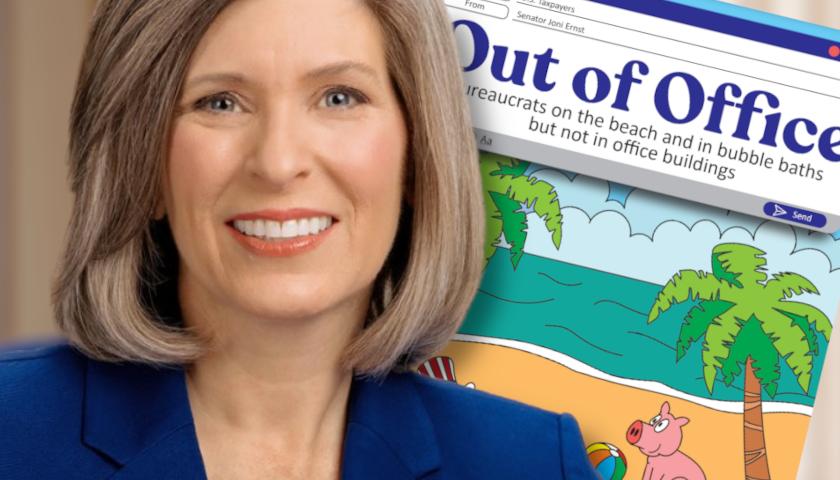State Representative Brad Roae (R-Meadville) this week proposed legislation to permit small businesses to continue operating during potential future states of emergency in Pennsylvania.
His bill, a version of a measure he sponsored in 2020, would permit small businesses to serve one customer at a time during such periods. The earlier legislation passed the House with nearly all Republicans and some Democrats in support, but the Senate did not vote on it.
Roae, who represents the Keystone State’s northwest corner, bemoaned the devastation many smaller companies experienced because of then-Governor Tom Wolf’s COVID-19 disaster declaration issued in early March 2020. The Democratic chief executive forbade employers he deemed “nonessential” to operate at all in the early months of the viral outbreak. Roae and other critics disfavored the uneven manner in which the Wolf administration applied the order: permitting some businesses to serve customers while directing others to shutter.
Particularly troubling, the representative said, was Wolf’s decision to close small retailers selling various merchandise like books, footwear, and bikes but letting supercenters offering the same items to remain open.
“Small business owners were very upset they had to close but right across the street box stores could be open selling the same types of products,” he told The Pennsylvania Daily Star.
The consequences of COVID countermeasures for small businesses proved especially painful for states like Pennsylvania, whose lockdown orders were among the most draconian. A September 2020 study from the federal Bureau of Labor Statistics determined that while state governments required nearly one-fifth of businesses nationwide to close in COVID’s early months, Pennsylvania establishments suffered a closure rate of 30 percent. That made Pennsylvania the second-most hard-hit state or territory in the nation in this regard, behind Michigan and Puerto Rico.
And while the coronavirus’s virulence subsided, many of the economic harms wrought by the 2020 recession continue — including permanent closures by some small shops that couldn’t weather the government’s restrictions.
“There’re fewer individually owned retail stores than there were before the closures,” Roae said. “Many of the stores have never recovered because everybody got used to buying things online.”
Altogether, hundreds of thousands of U.S. businesses stopped functioning due to state-level orders. The economic disruption not only sunk the dreams of many entrepreneurs but caused economic pains for vulnerable Americans that the nonprofit National Bureau of Economic Research has predicted will exacerbate health problems resulting in 0.8 million additional deaths over 15 years.
Republican state lawmakers curbed the governor’s emergency powers by passing state constitutional amendments to limit an emergency declaration to 21 days barring action by legislators, and letting a majority of lawmakers cancel or lengthen a disaster order. But Roae said even those amendments, which Pennsylvania voters approved at the ballot box in May 2021, still allow a state emergency to last long enough to inflict severe economic damage.
“I think [a bill protecting small businesses] is still necessary because it’s not likely the legislature would vote to instantly — in a matter of days — end the state of emergency,” he said. “Even in a few days, small-business owners can be greatly harmed if they’re forced to close but the box stores can stay open selling the same things.”
Roae said the rules the Wolf administration imposed on Pennsylvania stores seemed counterproductive toward facilitating the “social distancing” the governor said he wanted to achieve to lessen COVID’s spread.
“A governor forcing everybody to go into a handful of stores and leaving dozens of smaller stores closed actually concentrates people closer together,” the representative explained. “So, as far as social distancing, if you spread everybody out over a hundred stores, they’re spread out. But if you force them all to go to five big box stores, everybody’s there all together and it’s completely unfair to the small-business owners that they can’t sell the same things that the large stores that can remain open are selling.”
To see his legislation become law, Roae will need it to pass his own chamber, which the Democrats now control, before the measure goes to the GOP-led Senate for consideration. The bill will then need Democratic Governor Josh Shapiro’s signature. But the representative senses he may get the bipartisan support he needs.
“There’re not really that many anti-small-business-owner legislators,” he said. “You can’t really find legislators who are against small-business retail stores, so I think support for the legislation would still be strong. We passed it in the House before — the Senate never took it up — but I think we could pass it again.”
– – –
Bradley Vasoli is managing editor of The Pennsylvania Daily Star. Follow Brad on Twitter at @BVasoli. Email tips to [email protected].
Photo “Brad Roae” by PA State Rep. Brad Roae. Background Photo “Small Business Open” by Tim Mossholder.





